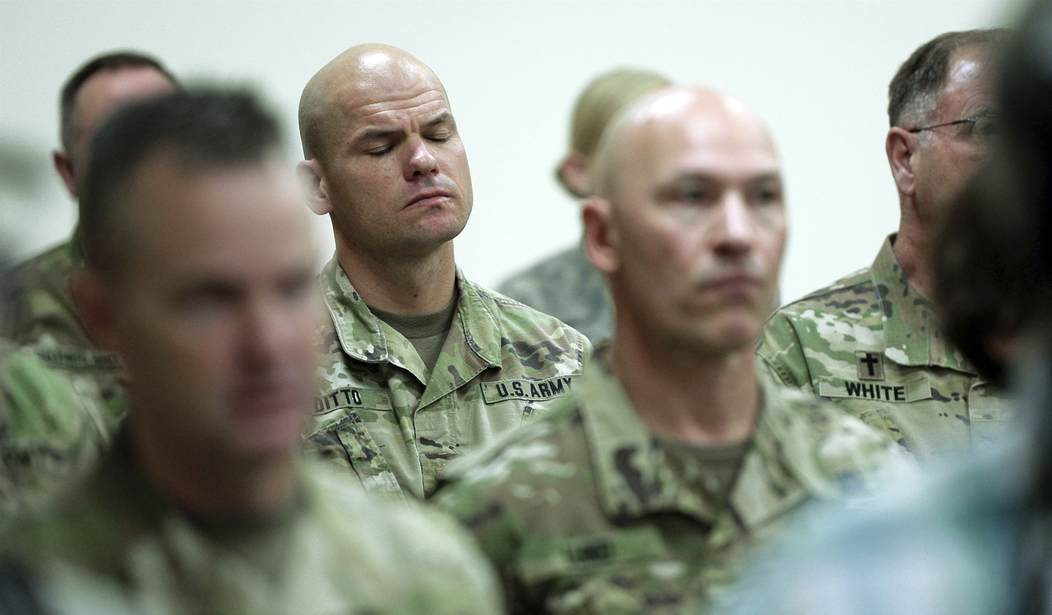As of this writing, Taliban forces have just entered Kabul, Afghanistan, the terrorist group’s leaders say that no force will be used to take the city, and both Taliban and Afghanistan government leaders say they’re working to negotiate a peaceful transfer of power to a “transitional government.” US Embassy staffers are being ferried from the Embassy to safety via Chinook helicopter after destroying records so that when the Embassy itself soon falls/is abandoned the Taliban won’t obtain information that could be used to hurt Americans or American interests. Instead of a troop withdrawal, 5,000 members of the United States Military are now headed to Afghanistan to oversee our retreat. Because of Joe Biden’s failure of leadership some Afghan interpreters who’ve worked with our country for 20 years, risking their lives and the lives of their family members, are being left behind to face execution.
These events are causing flashbacks for those who fought in Afghanistan, who lost friends there, and who daily deal with the ramifications of our military involvement there over the last two decades. They’re still fighting the spiritual battle daily. One veteran shared what they deal with in a letter to Dan Bongino, which Bongino read on his show “Unfiltered.”
“A lot of people don’t understand what it’s like coming home from combat, after doing things for your country. We have to live with what we’ve done. I feel I forfeited any chance to see my daughters in the afterlife. When your ROE’s were to smoke check anyone with a shovel and an orange bucket, including kids, it was like the Wild West. And your enemy changes you. You grow a hate inside you that you can’t come to terms with. You watch your Marines die. You watch them get maimed, losing legs, arms, private parts, all the while knowing the locals knew where the IEDs and ambushes were, but they didn’t tell you during one of the many of the Shuras you sat in on.
“Usually, they were 15, 20 pounders, which would take out a leg or both, sometimes a hand and part of the arm, if you were carrying your weapon at a low ready. The worst was a 50-7 pounder that turned you into what we called “pink mist.” We backed a truck up and put the pieces in the back using a poncho, and the kid next to him who was in shock while dropping every ordnance we had from fixed, rotary wing, artillery, and mortars.
“You hate yourself because you lived. You hate yourself because your Marine killed himself when we got home and you couldn’t prevent it. You hate yourself because you get drunk texts from your Marines telling you they love you and thanking you for what you did for them over there. But they’re hurting because you had to give them orders to kill kids. You have to carry that hate for the rest of your life. It doesn’t go away. It’s actually gotten worse. You have nightmares almost every night. You hardly sleep. Your daughters die in really bad ways in your dreams and you fear it’s punishment for what you did and they may come true. But America doesn’t care now. You’re a statistic at best. You’re hated at worst.”
It’s a tough letter to read, and a tough letter to hear. Bongino shared it, with his friend’s permission, because:
We just left people behind. Yeah, we needed to get out of there, but our people are there. All they sacrificed for 20 years, and this is what we do? It’s inexcusable.
As Dan says in the monologue, these veterans who made it home are not simple numbers on a spreadsheet. They’re our brothers and sisters, our neighbors, our little league coaches, and our friends. They live with unimaginable anguish every single day. It’s our duty to fight for them here at home – to insist that the military and our government provide them with the mental health help they need, to let them know that we love them, to let them know that we will not forget their brothers and sisters who died in battle or their families.
Watch Dan deliver his monologue and read the letter below.
(EDITOR’S NOTE: The veterans crisis hotline is a tool for both current and former military members who need immediate mental health help. If you or someone you know is thinking about suicide, please call the veterans crisis hotline at 800-273-8255, option 1. You can also call the national suicide prevention line at 800-273-8255.)














Join the conversation as a VIP Member